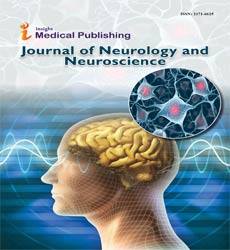Abstract
Neurodefensive Effect of Olea europaea L. in Alloxan-Induced Cognitive Dysfunction and Brain Tissue Oxidative Stress in Mice: Incredible Natural Nootropic
Background: In the controlling of Alzheimer disease (AD) plant with antioxidant activity has attained considerable attention. The plant Oleaeuropaea (OE) L. belong to family Oleaceae is a rich source of natural antioxidant. Therefore the intention of this study was to analyze the neuroprotective effects of ethanolic extract of OE (EEOE) fruits in alloxan-induced cognitive impairment and brain tissue oxidative stress in mice by using Hole Cross (HC) test, Open Field (OF) test, Free Exploration (FE) test, Y-Maze (YM) test and contents of thiobarbituric acid reactivesubstances(TBARS)in braintissuehomogenates of mice.
Methods: EEEO fruits were administered to alloxan-induced mice for 21st days. The neuroprotective effects ofthis fruit extracts were examined by using behavioral studies such as HC test, OF test, FE test, YM test and biochemical study such as lipid peroxidation (TBARS) assay.
Results: In HC test, administration of EEOE on 14th and 21st day was remarkably (P < 0.05, P < 0.01) increased the number of hole crossed from one chamber to another by mice as compared to the disease control group. Administration of EEOE significantly (P < 0.01) increased the number of square travelled by mice on 21st day with respect to that of disease control group in OF test. In FE test EEOE considerably (P < 0.05, P < 0.01) increased the number of entries to the novel area and time spent in the novel area of the mice on 7th, 14th and 21st day as compared to the disease control group. The administration of EEOE significantly (P < 0.05, P < 0.01) increased the percentage of spontaneous alternation behavior of the mice on 14th and 21st day as compared to that of disease control group in YM test. EEOE administration for successive days markedly (P < 0.05) decreased TBARS level in the brain tissue homogenates of mice with respect to disease control group.
Conclusion: The existing study suggests that EEOE fruit shows momentous neurodefensive activity. Consequently, this fruit extract may have impending therapeutic value in the treatment of some neurological disorders alike AD.
Author(s):
Abdullah AM, Md. Sahab Uddin, Ferdous Wahid, Mohammed AI and Md. Mosiqur Rahman
Abstract | Full-Text | PDF
Share this

Abstracted/Indexed in
- Google Scholar
- Open J Gate
- Genamics JournalSeek
- The Global Impact Factor (GIF)
- China National Knowledge Infrastructure (CNKI)
- Directory of Research Journal Indexing (DRJI)
- WorldCat
- Proquest Summons
- Scientific Journal Impact Factor
- Secret Search Engine Labs
- Euro Pub
Open Access Journals
- Aquaculture & Veterinary Science
- Chemistry & Chemical Sciences
- Clinical Sciences
- Engineering
- General Science
- Genetics & Molecular Biology
- Health Care & Nursing
- Immunology & Microbiology
- Materials Science
- Mathematics & Physics
- Medical Sciences
- Neurology & Psychiatry
- Oncology & Cancer Science
- Pharmaceutical Sciences

